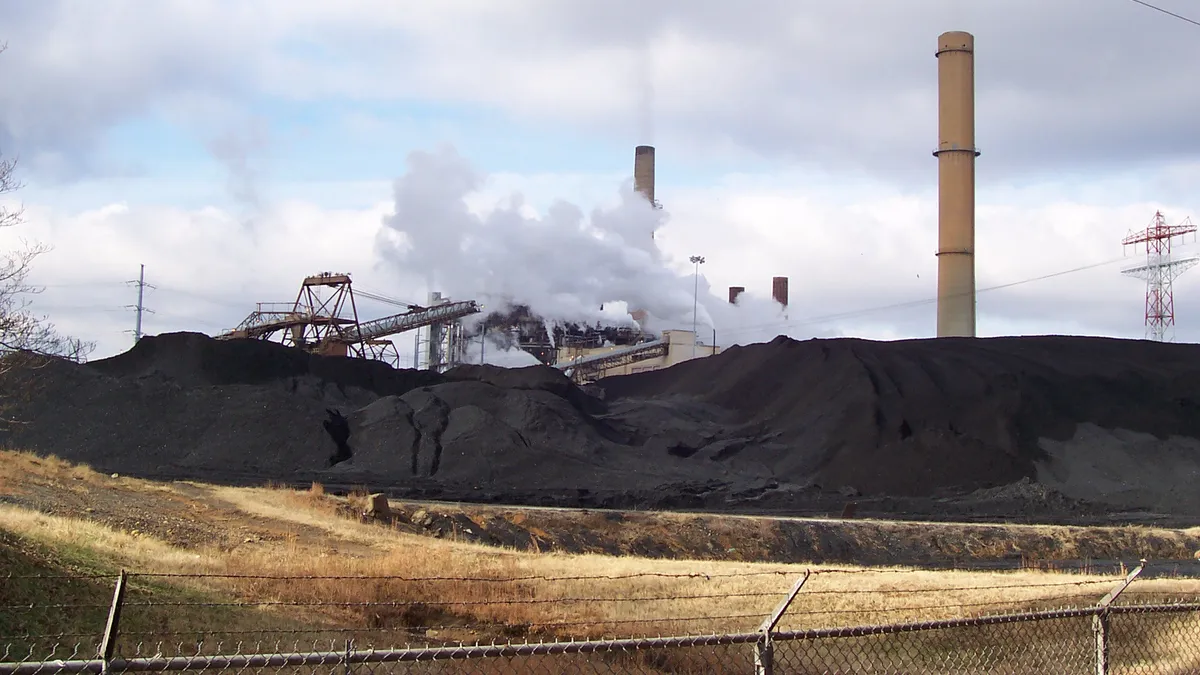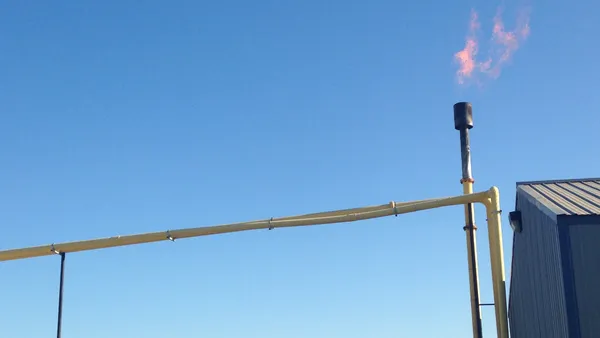Dive Brief:
- The EPA is proposing to allow Georgia to operate its own coal ash permitting program, the agency announced Monday. EPA has opened a 60-day comment on its proposal and will hold a public hearing in Atlanta in August.
- Georgia's proposed program "largely mirrors" the federal coal ash rule, Southern Environmental Law Center attorney April Lipscomb told Utility Dive, but the state will require utilities to apply for and get individual permits at each of their coal ash units.
- Oklahoma is the only other state able to operate its own permitting program. That was approved by the EPA a year ago as part of the Trump administration's rollback of the federal coal combustion residual rule, which was intended to give states and utilities more flexibility in coal ash management.
Dive Insight:
The proposal to approve Georgia's permitting program is the next step in the EPA's agenda to give states more authority on energy and environmental oversight. The federal agency said it hopes to see more states pursue a similar strategy.
"EPA encourages other states to follow Georgia's lead and assume oversight of coal ash management within their borders," EPA Administrator Andrew Wheeler said in a press release.
Under the program, the Georgia Environmental Protection Division (EPD) would have the authority to issue case-by-case permits.
"The implementation of coal ash disposal requirements through an enforceable permit is the most effective method to ensure the protection of surface and ground water from coal ash contamination," the state's EPD said in an emailed statement. "...The federal government has long recognized that states are in the best position to craft effective approaches to ensure all regulatory requirements have been met."
But environmentalists are concerned that a state-operated permit program encroaches on the ability to file citizen suits in federal court.
"Citizens would potentially be able to challenge state permits ... in state court. But that process is a lot more complicated than being able to bring a citizen suit in federal court," said Lipscomb.
Nineteen of Georgia's 29 coal ash ponds are slated for full excavation and closure, but the fate of the remaining 10 is a concern for environmentalists in the state.
"Georgia Power technically is going to be excavating the majority of its coal ash ponds, but they're the smallest of the coal ash ponds," said Lipscomb. "So some of the ponds that they're excavating, they're simply digging up that ash, moving it to another coal ash pond, and then capping that pond in place."
Unlike other southeastern states — such as North Carolina and Virginia, which have both ordered their major utilities to completely excavate all their coal ash ponds — Georgia regulators "continue to contemplate cap in place as a closure option," she said. Some of those ponds currently slated to be capped in place may be in violation of federal rules.
"Based on some of the initial data that we have seen, some of the coal ash ponds that Georgia Power plans to cap in place appear to be sitting in groundwater," said Lipscomb. "If that is the case, and they continue to plan to cap in place those ponds, our position is those ponds, those permits even, would be illegal because they don't meet the minimum federal criteria that they can't be sitting in groundwater. So we will have to wait and see exactly what EPD does."
The majority of Georgia's coal plants reported unsafe levels of one or more pollutant, according to a report released in December from the Environmental Integrity Project and Earthjustice, which compiled utility filings in the state.
"Advanced engineering methods," including consolidating pond size and placing barriers over the top of ponds, would prevent further groundwater contamination, Aaron Mitchell, Georgia Power's general manager of environmental affairs, told Utility Dive at the time.
The utility did not respond to Utility Dive's request for comment on EPA's proposed approval of Georgia's permitting program prior to publication.













